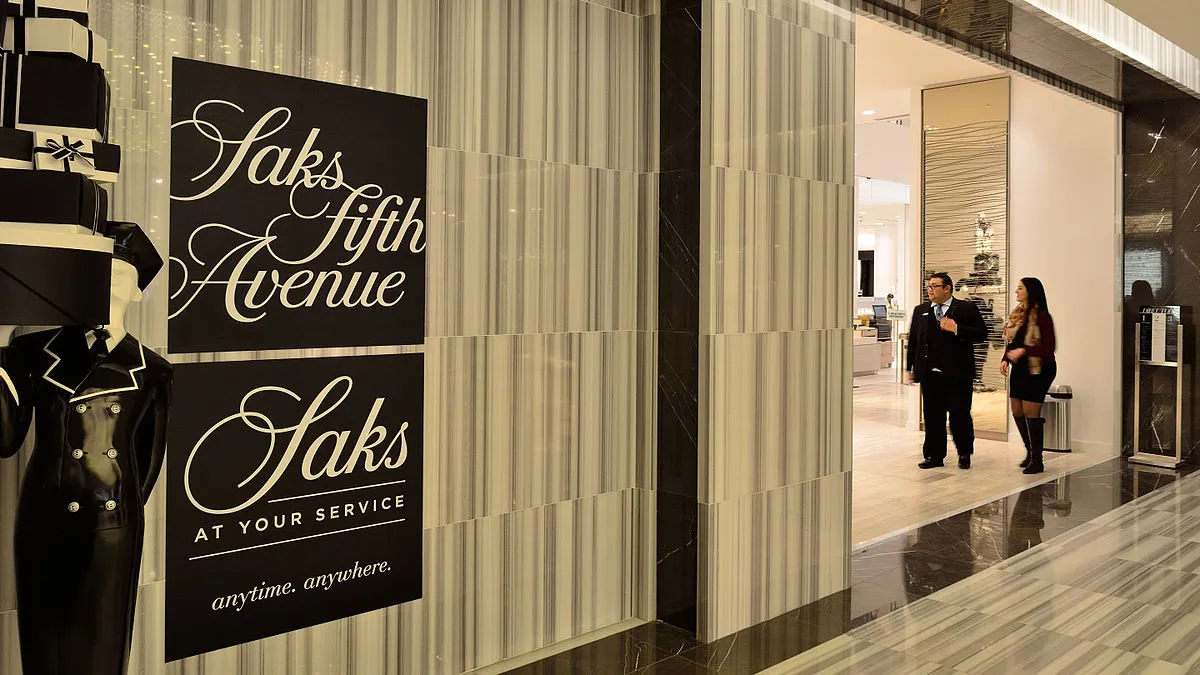Dive Brief:
-
In a letter to attorneys of independent managers of Neiman Marcus Group, creditor Mudrick Capital Management is pushing the retailer to "test the waters" of a sale, arguing it would be "substantially more beneficial to Neiman and all of its stakeholders" than the agreements outlined in the retailer's Chapter 11 filing.
-
Noting previous interest from Saks Fifth Avenue, Mudrick said that "Neiman and Saks operate highly complementary business models with significant overlap among customers, vendors, and geographic locations." Saks owner HBC in 2017 pursued an acquisition of Neiman Marcus but reportedly balked at the retailer's debt. Requests for comment from Saks and HBC weren't immediately returned. Neiman Marcus declined to comment to Retail Dive on the letter, which was first reported by Reuters.
-
Mudrick said it "estimates $2.8 billion to $4.7 billion of potential value creation" from that combination, and suggested using the bankruptcy process to close 22 full-line Neiman stores within 15 miles of a Saks. Another seven Neiman stores, farther from a Saks but in the same metropolitan area, "provide additional opportunities," according to the letter, which was emailed to Retail Dive.
Dive Insight:
After gobbling up department stores on two continents, HBC has more recently done an about-face, divesting itself of holdings in Europe and the U.S.
Last year, after selling Lord & Taylor's Italianate Fifth Avenue flagship to coworking company WeWork, HBC sold the retailer itself to apparel rental site Le Tote. With stores closed due to the pandemic, that tie-up appears to be fruitless, with liquidation sales, rather than fresh prospects, reportedly now planned for the venerable department store.
Providing that HBC retains interest in performing as a retailer and not, as some analysts have suggested, a real estate company, expanding again may be logical in light of the synergies Mudrick describes. On its face, a Saks acquisition makes sense for Neiman Marcus, too, which has held firm to its luxury position despite a heavy debt load that many analysts say has undermined its ability to thrive. Neiman Marcus also runs Bergdorf Goodman, another high-end retailer with some lasting loyalty.
"We believe a business combination with a retailer with the pedigree and prestige of Saks will no doubt be the most value-maximizing path forward for Neiman and its various stakeholders, and we look forward to your prompt investigation and pursuit of such an advantageous combination," Mudrick said.
However, the two banners could end up engaging in a sort of sibling rivalry that helps neither. "Saks and Neiman go head to head fighting for substantially the same customer," Mark Cohen, director of retail studies at Columbia University's Graduate School of Business, told Retail Dive when a merger was floated three years ago. "So what often happens is you get formerly hyper-competitive players who continue to be hyper-competitive and are a part of the same company."
In any case, Mudrick has found all kinds of money to be unleashed by the combo, made easier by the Chapter 11 filing. Shuttering the 22 Neiman Marcus stores would yield some $1.4 billion to $2.1 billion of value, with 13 leased locations coughing up "between $40 million and $50 million of annual rent expense and related occupancy costs, which could be rejected in chapter 11, thereby creating between $200 million and $250 million of incremental value," the hedge fund said. Then, store operating costs, including staffing expenses, could be reduced by "$150 million to $215 million annually." The nine owned locations similarly could be sold, and are worth between $400 million and $550 million, the letter states.
And that's only the start, as there are also additional synergies — some $300 million to $400 million of annual cost savings, implying an additional $1.4 billion to $2.6 billion of incremental value — that wouldn't be part of the bankruptcy process, but would also be gleaned from a merger, according to Mudrick.















